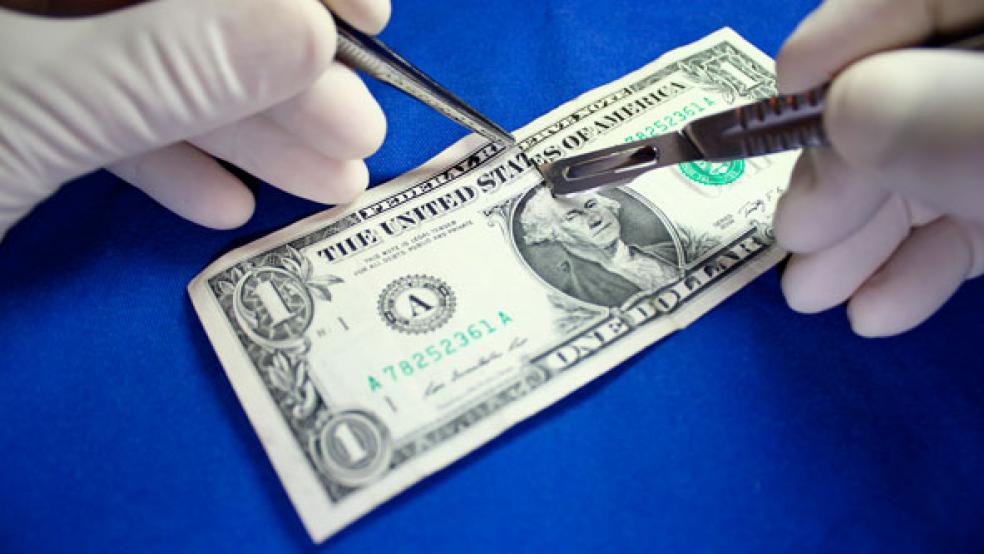The Obamacare rollout has reached its third month, with some 2.2 million people signing up for plans, marking the continued reinvention of the American health care system.
Barring a radical change, Obamacare is here to stay, at least until 2016. But the end product of this reinvention has yet to be determined, and is a matter of fierce debate.
Related: 11 GOP Attorneys General Say Obamacare Fix Is Illegal
The White House contends that Obamacare will reduce the number of uninsured, reign in health care costs, cut the deficit and improve the quality of health care. Opponents of the law argue that it’s simply another costly entitlement program that won’t control costs and will lower quality of care all while incurring hundreds of billions in new costs.
To get an idea of what the act of receiving health care will be like in the next five to 10 years with Obamacare as the law of the land, we reached out to experts who fell into one of three camps. One predicts disaster, another predicts success, and another doesn’t believe the Affordable Health Care Act will change much of anything.
The Optimist. Shana Alex Lavarreda, director of Health Insurance Studies at the UCLA Center for Health Policy Research, said that the act of visiting a doctor or the emergency room wouldn’t fundamentally change. However, the way medicine is managed will fundamentally change.
“People will need to do so much less because under the Accountable Care Organizations that will be in much wider existence, the dispersion of best practices for preventive care, and increased care management for those with chronic conditions,” Lavarreda said in an email. Lavarreda also said that Obamacare would help people to better manage their health, improving management of more serious conditions.
Related: The Unintended Consequence of Expanding Medicaid
“More appropriate care outside of the hospital or doctor's office will lead to more efficient care when one is needed.” Finally, she said she believed that remote medicine would become more common.
“Telemedicine will increase, allowing the health system to both increase productivity and to reach patients in remote areas,” Lavarreda said.
The Pessimist: Devon M. Herrick, a senior fellow at the National Center for Policy Analysis in Dallas in less optimistic about the benefits from Obamacare. He predicts a patient experience much more unpleasant than the one we have today.
“You’re right to question whether the Affordable Care Act will indeed be affordable over the long run. The ACA does nothing to reduce spending. It will have the opposite effect,” he said.
Related: Think You Have Obamacare Coverage? Prove It.
“There aren’t enough doctors to treat all the new enrollees. The ones most likely to suffer are those whose insurers pay the lowest reimbursements. Medicaid pays, on average, only about half what private insurers pay for the same service. Medicare pays only about 80 percent of what private insurers pay,” Herrick added. “Keep in mind the ACA calls for Medicare physician fees to be cut below Medicaid fees. If that happens, seniors and Medicaid enrollees will have even a harder time finding doctors who will treat them.”
This would fundamentally alter how people receive treatment, he said.
“Doctors who treat Medicare patient will accelerate the trend towards concierge medicine, where they fire 80 percent of their patients and charge the remaining 20 percent - roughly 300 to 500 patients - retainer fees,” he said.
Herrick added that this would increase the number of ER visits, making that experience more burdensome.
“Medicare and Medicaid patients already make up nearly two-thirds of ER visits,” he said. “This will get worse as seniors and Medicaid enrollees experience increased obstacles to care.”
The Pragmatist: Tom Miller, a resident fellow at the American Enterprise Institute, said that he doesn’t expect Obamacare to be the driver of changes to health care delivery.
“The doom and gloom folks say this is a slow march toward single payer,” he said. “The flip side is that we have the magic formula. It’s neither one of those extreme scenarios.”
Miller added that he does not believe that Obamacare will grow as quickly as many of its backers claim. “Will it be more pervasive and expansive than originally envisioned? It’s not going to happen. It’s not going to expand more broadly and dominate the health care system,” he said.
Instead, Miller said he believes demand driven by patients for alterations to the way health care is delivered will be the true driver of change. “Care evolves. It is going to less mass produced, just like we’ve seen in the pharma sector,” he said. “Blockbuster drugs are rarely occurring anymore. We’re matching treatments to an individual.”
He said the real barometer for Obamacare’s success is how the program is administered and evolved. That human factor will ultimately decide its success. “There are smart people who can do things better,” Miller said, “but there are a lot of dumb ones who can screw things up.”
Top Reads from the Fiscal Times:





